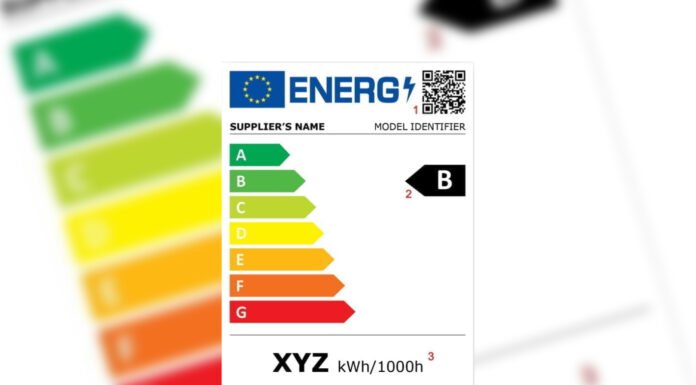In an era in which immediate access to information is considered an acquired right, it is surprising that a tool like QR code on energy labels, designed precisely to make consumption more transparent and aware, is still widely ignored.
According to a recent survey conducted by Altroconsumoonly 1 in 10 Italians has never used the QR code to access Eprel, the official register of the European Union which collects detailed data on thousands of electronic products and appliances. Yet that colorful label applied on refrigerators, washing machines or televisions is a mine of information accessible with a simple scan and directly from the smartphone.
From 20 June 2025, smartphones and tablets will also have to display the QR code European, marking a new chapter in the evolution of energy labels. The EPREL platform (European Product Registry for Energy Labelling) It has existed since 2019, it is free, public and designed to help citizens make more aware purchasing choices, evaluating parameters such as consumption, duration, noise and availability of spare parts.
Index:
- What is EPEL and why it is so important
- Purchase habits: the price wins on efficiency
- A new platform to make Epl more intuitive
What is EPEL and why it is so important
EPrel It is a digital register created by European Commission To collect and make available to the public all the technical cards of the products subject to energy labeling. This means that for each refrigerator, dishwasher or conditioner on the market in the EU, there is an easily accessible card with data on annual consumption, management costs, estimated duration and performance. The QR code printed on the energy label is the bridge directed towards this information, which can be consulted by any citizen via smartphone.
The goal is absolutely clear, and it is to stimulate more informed, efficient and sustainable consumption. Yet, as the search for Altroconsumo highlights, there is still little awareness; In fact, just 13% of Italians made at least one scan. A similar trend also emerges in the other EU countries involved in the investigation, confirming that the problem is European, not only Italian.
Purchase habits: the price wins on efficiency
The investigation underlines how consumers are sensitive toenergy efficiency Especially for household appliances, but much less for devices such as smartphones or tablets. In the consumer electronics range, the purchase price and the duration of the guarantee prevails, with the sustainability that remains in the background. It is a behavior consistent with the dynamics of the market, where decision times are quick and online comparators orient the choices.
The most interesting data, however, is that the majority of users already inform itself online before buying: the potential of EPrel There is, but a communicative turning point is needed to make it emerge. To date, consumers prefer to rely on reviews and comparators, but ignore a tool that offers official and verified information.
A new platform to make Epl more intuitive
Just to fill this gap between potential and real use, the project is born EPrel Servicesco -financed by the Life program of the European Union. The goal is twofold: on the one hand, simplify the database interface making it more user-friendly; on the other, launch targeted information campaigns to increase the visibility of the register between consumers and retailers.
Among the newly awaited news, a new digital platform that will allow quick and clear consultation, even for those who are little familiar with the technical data. This will be accompanied by tools designed to estimate long -term costs and evaluate the alternatives between purchase, repair and reuse.




